Masai Mara National Park Kenya is one of the most acclaimed wildlife reserves in Africa. The reserve covers more than 1,500 square kilometres and is famous for the breathtaking event known as the Great Migration. During this phenomenon, over 1.5 million wildebeests, zebras, and gazelles brave a dangerous crossing of the Mara River, home to predatory crocodiles. This dramatic display, occurring frequently between July and October, draws visitors from every corner of the globe to witness natural splendour. Named for the Masai, semi-nomadic pastoralists who have lived alongside the park’s wildlife and the Mara River, the park is steeped in deep cultural and natural history.
Quick Details About Masai Mara National Park
Location: Narok County, Kenya
Best Time To Visit: July to October, December to February
Nearest Airport: Keekorok Airstrip (16 km), Jomo Kenyatta International Airport (200 km)
Nearest Railway: Narok railway station, 80 km
Where To Stay: Sayari Camp, Asilia Africa, Lemala Kuria Hills Lodge
Where To Eat: Mara Sopa Lodge, Mara Sopa Lodge
Location
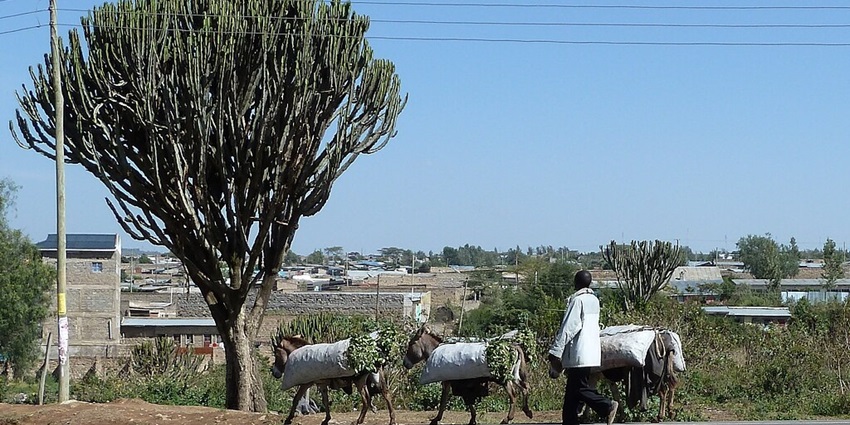
Photo: Николай Максимович / Wikimedia Commons / Image For Representation Only
The Masai Mara National Park, Kenya, is located in Narok County, in southwestern Kenya, near the border with Tanzania. The park encompasses a great expanse of savannah and the larger Mara-Serengeti ecosystem. The main entrance to the park is through the Sekenani Gate, which is situated along the Narok-Sekenani Road west of the park, about 5 kilometres from Sekenani town.
Suggested Read: Unveiling Kenya’s Coastal Treasures
How To Reach
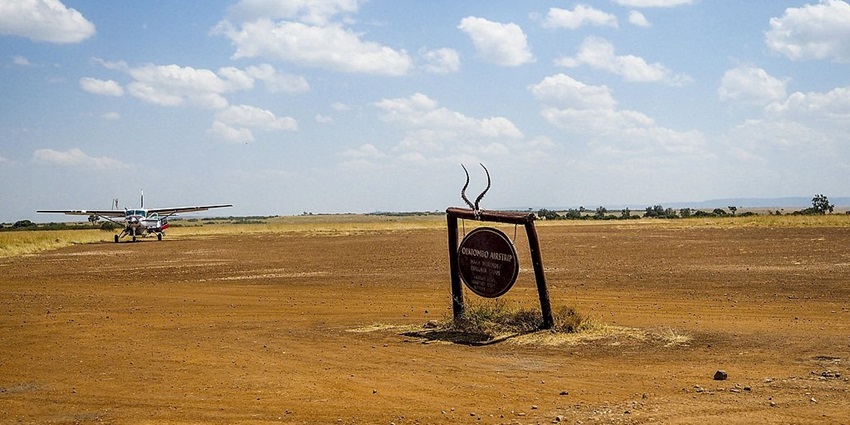
Photo: Esin Üstün / Wikimedia Commons / Image For Representation Only
By Air: Domestic flights from Nairobi’s Wilson Airport to Masai Mara’s airstrips, Keekorok, Ol Kiombo, or Serena, take around 45 minutes.
By Road: By car, the distance takes approximately 5-6 hours, usually via the Narok-Masai Mara. Tour operators arrange either exclusive transfers or group safaris on 4×4.
By Railway: Since Masai Mara National Park Kenya is on secluded land, there are no railways nearby. The nearest railway station is Narok station; from there, you can take a bus or matatu and then local transport to the park.
Things To Do
Here is the list of things that you can do near the Masai Mara National Park in Kenya:
1. Witness The Great Migration

Photo: Benh LIEU SONG / Wikimedia Commons / Image For Representation Only
See one of nature’s most dramatic spectacles, the Great Migration, as more than two million wildebeest, zebras, and gazelles cross the Mara River. Go from July through October to witness predators like lions, crocodiles, and hyenas capitalising on the mayhem. The experience is even more rewarding with an expert guide who shares insights into animal behaviour and where to see the best of it. The best light for photography comes in the early morning game drives, when the beauty of this annual spectacle can be captured.
Suggested Read: Hells Gate National Park
2. Hot Air Balloon Safaris
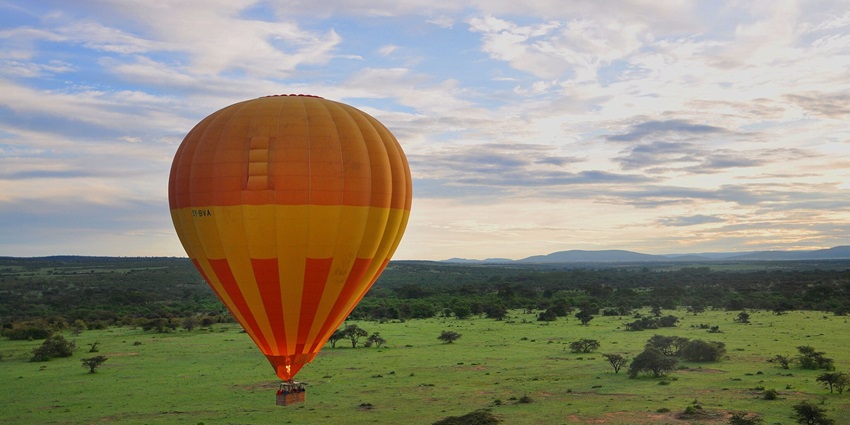
Photo: Wajahatmr / Wikimedia Commons
Kick off your day with a spectacular hot air balloon ride for a bird’s-eye view of the park’s sprawling terrain. Suspended silently over the savanna, you can see herds of elephants, lions on the prowl and grazing giraffes. The journey concludes with a champagne breakfast in nature, and it’s a lavish and unforgettable ride. Hear pilots share interesting facts about the land and wildlife seen from above. The early beginning is justified by the dawn, where the reserve is bathed in golden light and the mix between the adventure and the calm becomes a reality.
3. Visit The Masai Village
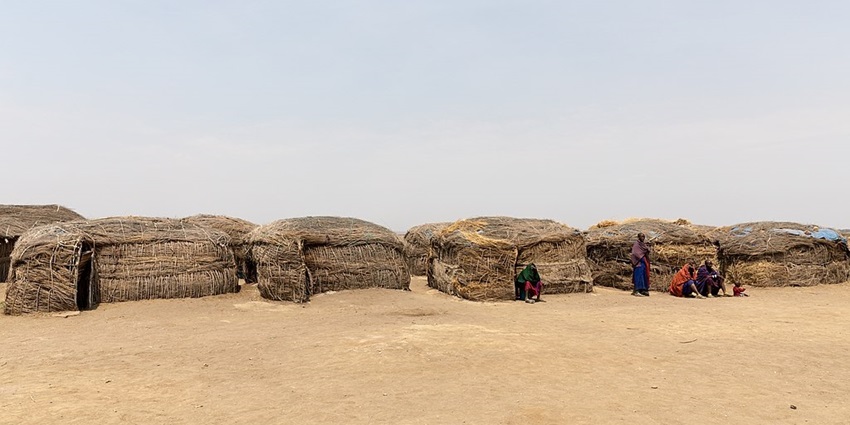
Photo: Zenith4237 / Wikimedia Commons
Visit a traditional Masai village. Discover their customs, dances, and crafts by engaging directly with community members. See the famous adumu (jumping dance) performed by the Masai warriors and an overview of their unique beadwork and art villages. They usually provide guided tours detailing the importance of their bomas (huts) and livestock to daily life. By buying handcrafted jewellery, you are supporting the local artisans and ensuring your visit is positive, which impacts the local community while learning more about how they coexist in harmony with nature and wildlife.
Suggested Read: Mount Kenya National Park
Places To Visit Near Mara National Park Kenya
Following are the places to visit near Mara National Park and complete your adventure.
1. Mara River
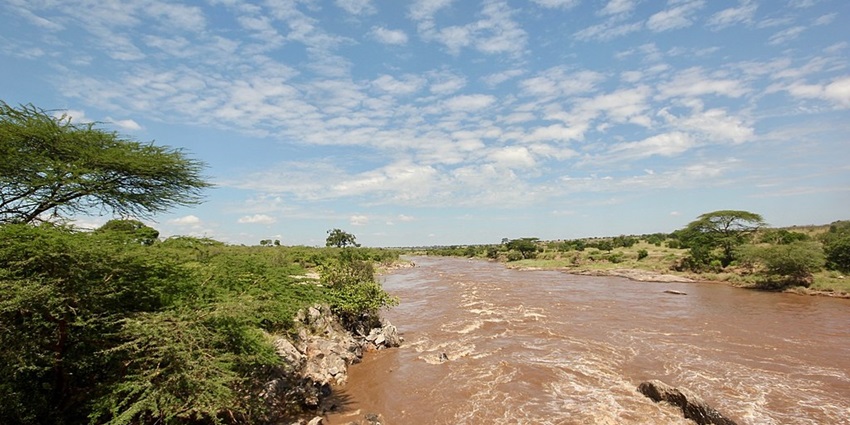
Photo: Kandukuru Nagarjun / Wikimedia Commons
The Mara River is a lifeline that flows through the Masai Mara ecosystem, providing sustenance to a wide variety of wildlife. Every year, it hosts the Great Migration, where two and a half million wildebeest, zebras, and other herbivores migrate from Serengeti to the Masai Mara in the hunt for greener pastures. River crossing becomes particularly dramatic. Its waters house large populations of hippos and crocodiles existing side by side in delicate balance.
Distance: 34 km
Timings: 24*7
Suggested Read: Things To Do In Kenya
2. Naboisho Conservancy
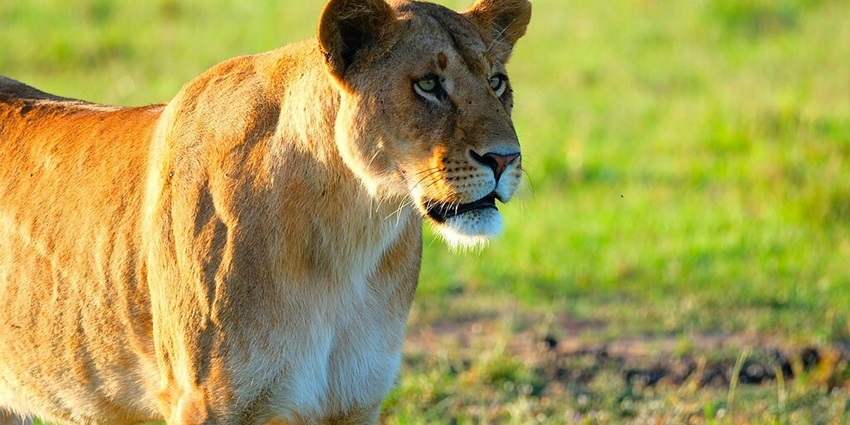
Photo: Zammerman / Wikimedia Commons / Image For Representation Only
Naboisho Conservancy, northeast of the Masai Mara National Reserve, covers 53,000 acres and is an exclusive safari experience with a relatively low tourism density. Being a private conservancy, it is famous for holding a high concentration of wildlife, including great numbers of large cats like lions and massive herds of elephants, giraffes, and wildebeest. Naboisho stands out among other conservancies in its commitment to community-based tourism.
Distance: 21 km
Timings: 6 AM – 6 PM
3. Ol Kinyei Conservancy
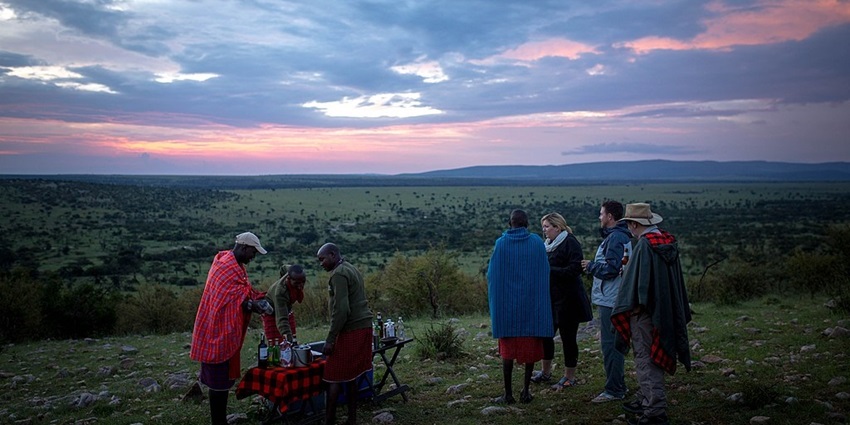
Photo: Stuart Price / Wikimedia Commons
Ol Kinyei Conservancy, established in 2005, covers about 18,500 acres within Kenya’s Masai Mara ecosystem. It has open savannahs, riverine forests, and rolling hills and forms a beautiful landscape to admire for wildlife enthusiasts and photographers. Another key characteristic of Ol Kinyei is that the lion population density is relatively high. Beyond lions, Ol Kinyei supports a wide diversity of wildlife, particularly cheetahs and elephants, among other herbivores. You can engage in guided game drives, nature walks, or cultural interactions with the resident Masai community.
Distance: 23 km
Timings: 6 AM – 6:30 PM
Suggested Read: Things To Do In Nairobi
4. Loita Hills
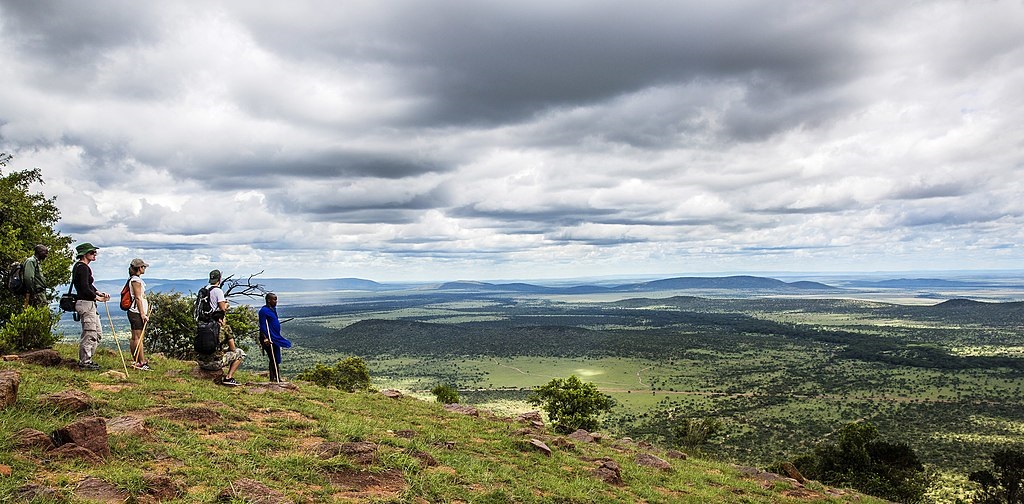
Photo: Ninara / Wikimedia Commons
Loita Hills, in Masai folklore, is known as the “Forest of the Lost Child.” It is a region in Kenya that offers a perfect blend of natural beauty and cultural richness. The region is characterised by lush forests, rolling hills, and serene waterfalls, making it an ideal destination for trekking enthusiasts seeking tranquillity away from the bustling savannahs. Guided treks led by Masai warriors help to experience their deep connection with nature, traditional knowledge of plant and animal life, and the challenges encountered in preserving their culture in the face of modernisation.
Distance: 62 km
Timings: 24*7
5. Olkurruk Mara Airstrip Region

Photo: Wajahatmr / Wikimedia Commons / Image For Representation Only
The Olkurruk Mara Airstrip area is a peaceful and exclusive western entry into the Masai Mara National Reserve. Renowned for its remoteness, this less travelled part of the country offers some of the best wildlife experiences around. The early morning hot air balloon safaris give sweeping Savannah vistas and get close-up to herding wildebeests, zebras, gazelles, and predators like lions and cheetahs. By landing, a champagne bush breakfast awaits that adds a sprinkle of glamour to the affair.
Distance: 23 km
Timings: 6 AM – 7 PM
Suggested Read: Discover The Iconic Places To Visit In Nairobi
Other Factors To Consider
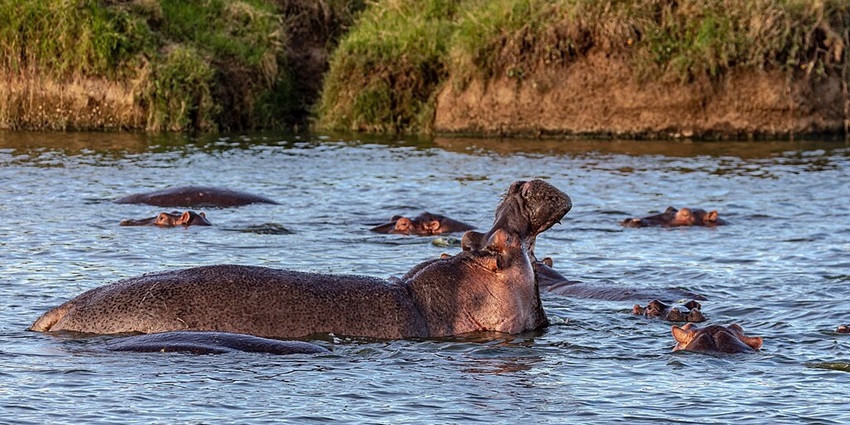
Photo: Ninara / Wikimedia Commons
Best Time To Visit: The best time to visit Masai Mara National Park, Kenya, is from July to October, when the Great Wildebeest Migration happens. It is a time of great wildlife viewing.
Tourist tips: Wear neutral-coloured clothes to blend with the surroundings. Pack sunscreen, repellents, and a good pair of binoculars. The best time to visit the wildlife is early in the morning and late afternoon.
Average cost: A visit to Masai Mara National Park, Kenya, costs a foreign person about $1,000 to $3,000 per person for a 3-day safari. The estimate includes international tourist park entry fees of about $70 per adult per day, accommodation ranging from budget camps to luxury lodges, guided game drives, and meals.
The landscape of Masai Mara National Park Kenya itself is quite breathtaking, with vast savannahs, dramatic river crossings, and endless skies to make for breathtaking vistas. Whether you’re exploring the park on a game drive, taking a hot air balloon ride at sunrise, or simply watching the sunset over the plains, it is a destination that leaves a lasting impact. So, plan your trip with TripXL and experience Kenya’s culture with adventure.
Cover Photo: Byrdyak / Wikimedia Commons


 WhatsApp
WhatsApp
 Twitter
Twitter









